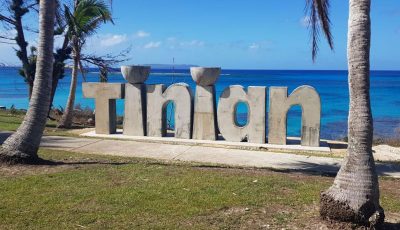Torres: I never talked to Dela Cruz whether to testify or not
Garber notes lack of pending legislation relating to issues JGO is investigating; no pending impeachment proceedings
Gov. Ralph DLG Torres said Friday that he never talked to his executive assistant, Frances Dela Cruz, whether to testify or not to testify before the House of Representatives Judiciary and Governmental Operations Committee, which is investigating his expenditures of public funds and travels.
As this developed, Ross Garber, the Washington D.C.-based lawyer for Torres in the JGO matter, wrote JGO chair Rep. Celina R. Babauta last Sunday, saying he is not aware of any pending legislation relating to the issues the JGO Committee is investigating.
In response to questions about the JGO hearing during his radio press briefing, Torres said that, for the record, he does not talk any of those that have been subpoenaed by the JGO Committee whether to testify or not, or what to say or not to say.
“So this goes with Frances [Dela Cruz]. She has an attorney and she discussed those options that she has,” Torres said.
The governor said he is not sure if Dela Cruz will testify today, Tuesday, before the JGO, as it will be her decision.
Torres reiterated that he earlier told lawmakers that they only need to just ask him for any information, or send the documents that they’re concerned about, as he would just have answered that.
“But yet they continue to call everybody else that’s pertaining to whatever investigation they’re having. So there’s process and we’re going to do that process,” he said.
In his letter to Babauta Sunday, Garber said inasmuch as the Legislature is seeking to determine Torres’ compliance with the law, this is a role specifically reserved for other state officials, including the Public Auditor and the Attorney General.
“Notably, there are no pending impeachment proceedings,” he said.
In short, Garber said, the JGO Committee may not usurp the role of other state officials, and it is not conducting an inquiry “on a subject on which legislation could be had.”
Garber had earlier objected to the JGO Committee’s subpoena for Dela Cruz to testify, asserting that the executive assistant has testimonial immunity.
To be clear, Garber said, he is not advocating that Dela Cruz refuse to provide information to the committee. Instead, he proposes that it be done in a way that maximizes the reliability of any such information and reduces the chance that the process will impair valid privileges or improperly harass and embarrass key personnel of the Office of the Governor.
“Nor would my proposal require the committee to waive or forever eschew obtaining live testimony from Ms. Dela Cruz should it be deemed to be necessary,” Garber said.
Instead, he said, upon receiving written answers to questions (under oath), the committee may then determine whether the live testimony would advance its inquiry.
Garber said the Office of the Governor invites further input and even a counter-proposal should this approach not be satisfactory.
The lawyer urged the committee that threats of contempt against Dela Cruz be avoided, given her untenable position between an arm of the Legislative Branch and an Executive Branch asserting its constitutional privileges and immunities.
Garber proposed that Dela Cruz should instead provide, in writing and under oath, responses to written questions asked by the committee.
Babauta however, rejected Garber’s proposal as unreasonable, describing it, in effect, as a proposal for the subpoena to Dela Cruz to be set aside.
“Live testimony is substantively different from written interrogatories and is not an adequate substitute,” she said.
Babauta said they see no reason to doubt that Dela Cruz is lawfully subject to subpoena and may be held in contempt if she fails to appear.



























